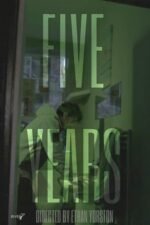As cinematic history attests, the drug trade has been a perennial source of captivating narratives and thought-provoking themes. From tales of ruthless gangsters to tales of ordinary individuals drawn into extraordinary circumstances, these films offer us an intriguing lens through which we can explore human nature, societal structures, and the relentless pursuit of power and wealth.
Take "Five Years", for instance. Alex's journey is a timely reminder that success isn't always synonymous with happiness; it often comes at a steep price. The film dares to ask: At what point do we stop chasing ambition and start cherishing our relationships, our health, and our inner selves? This question resonates particularly strongly amidst the frenzied rush of modern life, where the relentless pursuit of professional achievements can all too easily overshadow our personal wellbeing.
"Sons of Ecstasy", set against the pulsating backdrop of the Arizona desert in the '90s, offers us a glimpse into the dangerous world of ecstasy trade. The rivalry between the British stockbroker and the New York mobster's son is as gripping as it is unexpected - it's an electrifying game of power and deception played out amidst the hedonistic underbelly of underground raves. As audiences are drawn into this deadly game, they can't help but consider how drug trades often reflect society's deepest desires and fears, turning them into potent metaphors for human nature itself.
In "Bricked Up", Milo accidentally finds himself in possession of a kilo of cocaine. What follows is an adrenaline-fueled comedy thriller that keeps viewers on the edge of their seats while subtly exploring themes like friendship, loyalty, and the harsh realities of drug cartels. The film serves as a stark reminder that the drug trade isn't just about money or power; it's about human connections - both the bonds we form and the betrayals that can shatter them.
"Deep Cover" plunges us into the world of police infiltration, where Russell Stevens, a black law enforcement officer, takes on the challenging task of dismantling a powerful drug empire. As he delves deeper into this high-stakes operation, he's forced to confront the complexities of trust and betrayal within criminal organizations. This tense drama not only captures the danger inherent in undercover work but also highlights the dedication of those who stand against drug cartels, offering a glimpse into the personal sacrifices required for such work.
"Framing John DeLorean" is a unique blend of documentary and scripted scenes that delve into the life of automotive visionary John DeLorean. The film explores themes like innovation, greed, and personal redemption while painting an intimate portrait of this enigmatic figure in automotive history. It invites viewers to reflect on the human cost of ambition, reminding us that even those at the top can fall prey to their own flaws and failings.
Finally, "Birds of Passage" offers a poignant portrayal of the devastating consequences of greed and its impact on families caught in drug trades. Set against the backdrop of Colombia's marijuana trade, this film brings forth the human cost behind criminal operations - lost cultural heritage, fractured relationships, and ultimately, personal destruction. It serves as a powerful reminder that beneath the glamorous facade of wealth and power lie dark undercurrents that can easily consume those who venture into such treacherous waters.
In conclusion, films about drug trade offer us more than just thrilling narratives; they provide thought-provoking insights into human nature, societal structures, and the relentless pursuit of power and wealth. They remind us that beneath the glossy surface of money, fame, and success, there are often hidden costs - both to individuals and societies at large. By engaging with these cinematic journeys through the drug trade, we can gain a deeper understanding of ourselves and our world, while also experiencing the raw emotion and excitement that only great storytelling can offer.





























